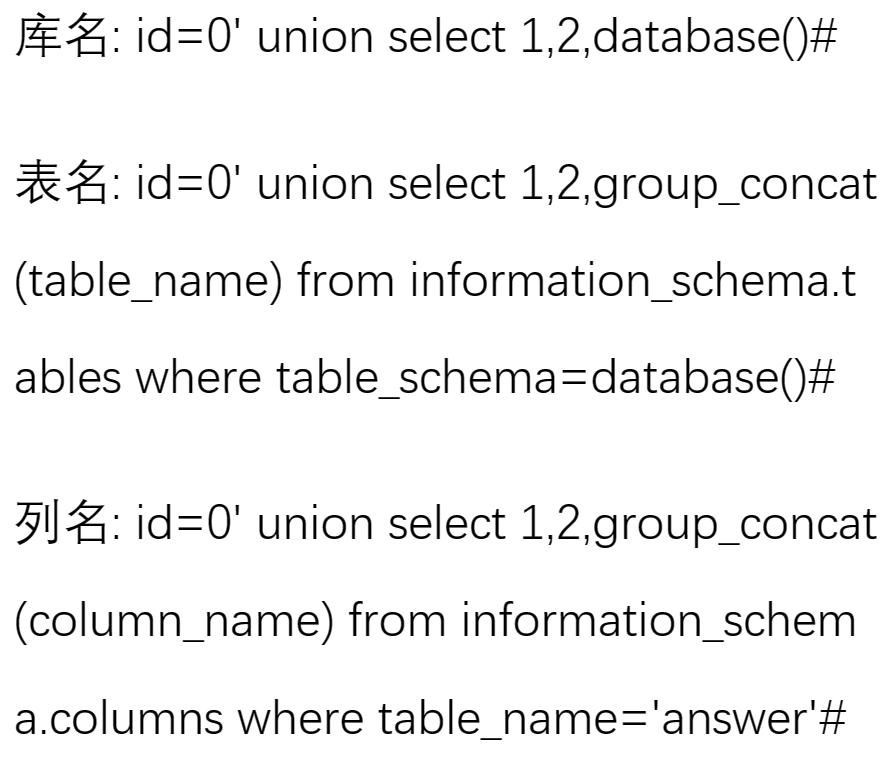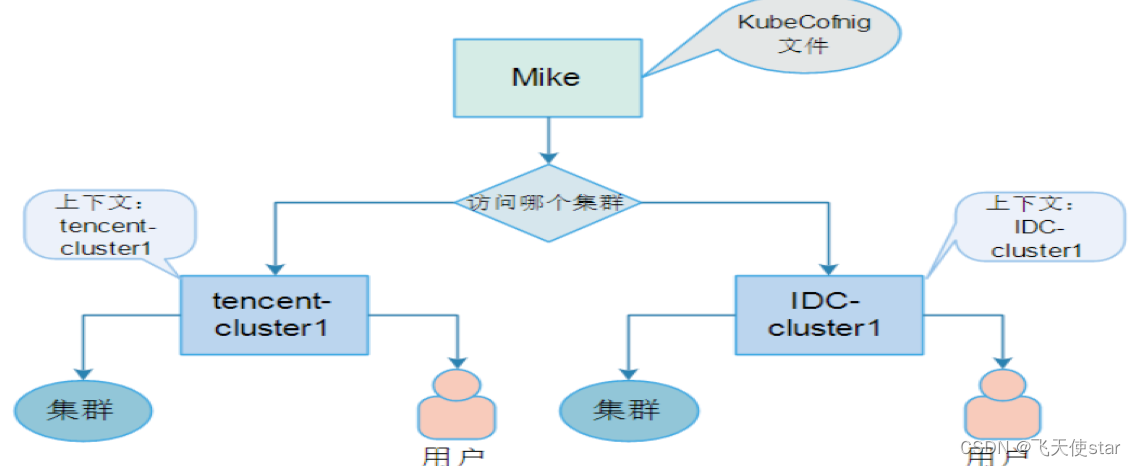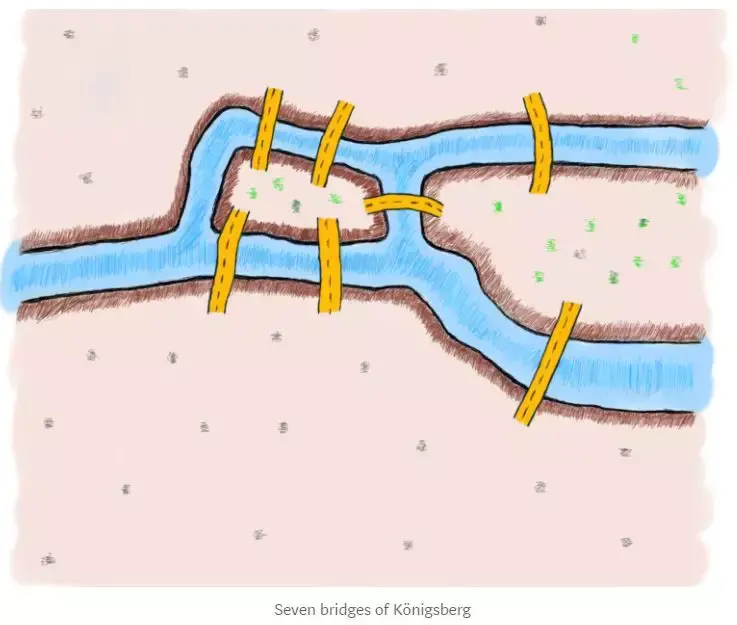GitHub - stm32duino/Arduino_Core_STM32: STM32 core support for Arduino
帮助 wiki
system:stm32的启动文件
corel/arduino :包含与arduino相关的文件
library:示列,以及于ARDUINO相关的函数(SRCWRAPPER文件)
variant:stm32不同板子的信息
stm32 外设时钟使能与arduino中
目录:corel/arduino
相关文件:
涉及相应函数 来源于LL
| 相关文件 | 相关函数 | |
| wiring.h | 主要函数 | |
| wring_analog.c | digital_wirte() digitalPinToPinName()[pins_arduino.h] | |
| wring_digital.c | digitalWriteFast() digitalReadFast() | |
#----------WIRING_ANALOG.C
uint32_t analogRead(uint32_t ulPin) *************
{
uint32_t value = 0;
#if defined(HAL_ADC_MODULE_ENABLED) && !defined(HAL_ADC_MODULE_ONLY)
PinName p = analogInputToPinName(ulPin);
if (p != NC) {
value = adc_read_value(p, _internalReadResolution);
value = mapResolution(value, _internalReadResolution, _readResolution);
}
#else
UNUSED(ulPin);
#endif
return value;
}
void analogWrite(uint32_t ulPin, uint32_t ulValue) **************
{
#if defined(HAL_DAC_MODULE_ENABLED) && !defined(HAL_DAC_MODULE_ONLY)
uint8_t do_init = 0;
#endif
PinName p = digitalPinToPinName(ulPin);
if (p != NC) {
#if defined(HAL_DAC_MODULE_ENABLED) && !defined(HAL_DAC_MODULE_ONLY)
if (pin_in_pinmap(p, PinMap_DAC)) {
if (is_pin_configured(p, g_anOutputPinConfigured) == false) {
do_init = 1;
set_pin_configured(p, g_anOutputPinConfigured); *****************
}
ulValue = mapResolution(ulValue, _writeResolution, DACC_RESOLUTION);
dac_write_value(p, ulValue, do_init); *******************
} else
#endif //HAL_DAC_MODULE_ENABLED && !HAL_DAC_MODULE_ONLY
#if defined(HAL_TIM_MODULE_ENABLED) && !defined(HAL_TIM_MODULE_ONLY)
if (pin_in_pinmap(p, PinMap_TIM)) {
if (is_pin_configured(p, g_anOutputPinConfigured) == false) {
set_pin_configured(p, g_anOutputPinConfigured);
}
ulValue = mapResolution(ulValue, _writeResolution, _internalWriteResolution);
pwm_start(p, _writeFreq, ulValue, _internalWriteResolution);
} else
#endif /* HAL_TIM_MODULE_ENABLED && !HAL_TIM_MODULE_ONLY */
{
//DIGITAL PIN ONLY
// Defaults to digital write
pinMode(ulPin, OUTPUT); // ***************
ulValue = mapResolution(ulValue, _writeResolution, 8);
if (ulValue < 128) {
digitalWrite(ulPin, LOW); //(********** DIGITALWRITE
} else {
digitalWrite(ulPin, HIGH);
}
}
}
}
------------------------------------------------------------------
#WIRING_DIGITAL.C
void digitalWrite(uint32_t ulPin, uint32_t ulVal)
{
digitalWriteFast(digitalPinToPinName(ulPin), ulVal);
}
int digitalRead(uint32_t ulPin)
{
return digitalReadFast(digitalPinToPinName(ulPin));
}
void digitalToggle(uint32_t ulPin)
{
digitalToggleFast(digitalPinToPinName(ulPin));
}
void pinMode(uint32_t ulPin, uint32_t ulMode)
{
PinName p = digitalPinToPinName(ulPin); ***************
if (p != NC) {
// If the pin that support PWM or DAC output, we need to turn it off
#if (defined(HAL_DAC_MODULE_ENABLED) && !defined(HAL_DAC_MODULE_ONLY)) ||\
(defined(HAL_TIM_MODULE_ENABLED) && !defined(HAL_TIM_MODULE_ONLY))
if (is_pin_configured(p, g_anOutputPinConfigured)) {
#if defined(HAL_DAC_MODULE_ENABLED) && !defined(HAL_DAC_MODULE_ONLY)
if (pin_in_pinmap(p, PinMap_DAC)) {
dac_stop(p); *********主要函数
} else
#endif //HAL_DAC_MODULE_ENABLED && !HAL_DAC_MODULE_ONLY
#if defined(HAL_TIM_MODULE_ENABLED) && !defined(HAL_TIM_MODULE_ONLY)
if (pin_in_pinmap(p, PinMap_TIM)) {
pwm_stop(p); *******主要函数
}
#endif //HAL_TIM_MODULE_ENABLED && !HAL_TIM_MODULE_ONLY
{
reset_pin_configured(p, g_anOutputPinConfigured); **********
}
}
#endif
switch (ulMode) {
case INPUT: /* INPUT_FLOATING */
pin_function(p, STM_PIN_DATA(STM_MODE_INPUT, GPIO_NOPULL, 0));
break;
case INPUT_PULLUP:
pin_function(p, STM_PIN_DATA(STM_MODE_INPUT, GPIO_PULLUP, 0));
break;
case INPUT_PULLDOWN:
pin_function(p, STM_PIN_DATA(STM_MODE_INPUT, GPIO_PULLDOWN, 0));
break;
case INPUT_ANALOG:
pin_function(p, STM_PIN_DATA(STM_MODE_ANALOG, GPIO_NOPULL, 0));
break;
case OUTPUT:
pin_function(p, STM_PIN_DATA(STM_MODE_OUTPUT_PP, GPIO_NOPULL, 0));
break;
case OUTPUT_OPEN_DRAIN:
pin_function(p, STM_PIN_DATA(STM_MODE_OUTPUT_OD, GPIO_NOPULL, 0));
break;
default:
Error_Handler();
break;
}
}
}
-------------------------------------------------------------
#HARDWARESERIAL.CPP
void HardwareSerial::begin(unsigned long baud, byte config)
{
uint32_t databits = 0;
uint32_t stopbits = 0;
uint32_t parity = 0;
_baud = baud;
_config = config;
// Manage databits
switch (config & 0x07) {
case 0x02:
databits = 6;
break;
case 0x04:
databits = 7;
break;
case 0x06:
databits = 8;
break;
default:
databits = 0;
break;
}
if ((config & 0x30) == 0x30) {
parity = UART_PARITY_ODD;
databits++;
} else if ((config & 0x20) == 0x20) {
parity = UART_PARITY_EVEN;
databits++;
} else {
parity = UART_PARITY_NONE;
}
if ((config & 0x08) == 0x08) {
stopbits = UART_STOPBITS_2;
} else {
stopbits = UART_STOPBITS_1;
}
switch (databits) {
#ifdef UART_WORDLENGTH_7B
case 7:
databits = UART_WORDLENGTH_7B;
break;
#endif
case 8:
databits = UART_WORDLENGTH_8B;
break;
case 9:
databits = UART_WORDLENGTH_9B;
break;
default:
case 0:
Error_Handler();
break;
}
uart_init(&_serial, (uint32_t)baud, databits, parity, stopbits); **********
enableHalfDuplexRx();
uart_attach_rx_callback(&_serial, _rx_complete_irq);
}
-------------------------------------------------------------
#PINS_ARDUINO.H
**digitalPinToPinName
#define digitalPinToPinName(p) ((((uint32_t)(p) & PNUM_MASK) < NUM_DIGITAL_PINS) ? \
(PinName)(digitalPin[(uint32_t)(p) & PNUM_MASK] | ((p) & ALTX_MASK)) : NC)
#endif /* NUM_ANALOG_INPUTS > 0 */
//***********digitalPin
//
主要涉及函数:
digitalPin
dac_stop(p)
pwm_stop(p) #定义在 ANALOG.H
reset_pin_configured
set_pin_configured
dac_write_value
pwm_start #定义在 ANALOG.H
adc_read_valuE
uart_init
--------------------------------------
#ANALOG.H
/* Define to prevent recursive inclusion -------------------------------------*/
#ifndef __ANALOG_H
#define __ANALOG_H
/* Includes ------------------------------------------------------------------*/
#include "stm32_def.h"
#include "PeripheralPins.h"
#include "HardwareTimer.h"
#ifdef __cplusplus
extern "C" {
#endif
/* Exported functions ------------------------------------------------------- */
#if defined(HAL_ADC_MODULE_ENABLED) && !defined(HAL_ADC_MODULE_ONLY)
uint32_t get_adc_channel(PinName pin, uint32_t *bank);
uint32_t get_adc_internal_channel(PinName pin);
uint16_t adc_read_value(PinName pin, uint32_t resolution);
#endif
#if defined(HAL_DAC_MODULE_ENABLED) && !defined(HAL_DAC_MODULE_ONLY)
uint32_t get_dac_channel(PinName pin);
void dac_write_value(PinName pin, uint32_t value, uint8_t do_init);
void dac_stop(PinName pin);
#endif
#if defined(HAL_TIM_MODULE_ENABLED) && !defined(HAL_TIM_MODULE_ONLY)
void pwm_start(PinName pin, uint32_t clock_freq, uint32_t value, TimerCompareFormat_t resolution);
void pwm_stop(PinName pin);
#endif
PINMAP.H
bool pin_in_pinmap(PinName pin, const PinMap *map);
void pin_function(PinName pin, int function);
PINFUNCTION
主要函数所在地址 :
STMicroelectronics\hardware\stm32\2.4.0\libraries\SrcWrapper\src\stm32
STMicroelectronics\hardware\stm32\2.4.0\libraries\SrcWrapper\src
/*
*******************************************************************************
* Copyright (c) 2016-2021, STMicroelectronics
* All rights reserved.
*
* This software component is licensed by ST under BSD 3-Clause license,
* the "License"; You may not use this file except in compliance with the
* License. You may obtain a copy of the License at:
* opensource.org/licenses/BSD-3-Clause
*
*******************************************************************************
*/
#include "analog.h"
#include "lock_resource.h"
#include "stm32yyxx_ll_adc.h"
#include "PinAF_STM32F1.h"
#ifdef __cplusplus
extern "C" {
#endif
/* Private_Variables */
#if (defined(HAL_ADC_MODULE_ENABLED) && !defined(HAL_ADC_MODULE_ONLY)) ||\
(defined(HAL_DAC_MODULE_ENABLED) && !defined(HAL_DAC_MODULE_ONLY))
static PinName g_current_pin = NC;
#endif
/* Private_Defines */
#if defined(HAL_ADC_MODULE_ENABLED) && !defined(HAL_ADC_MODULE_ONLY)
#ifndef ADC_SAMPLINGTIME
#if defined(ADC_SAMPLETIME_8CYCLES_5)
#define ADC_SAMPLINGTIME ADC_SAMPLETIME_8CYCLES_5;
#elif defined(ADC_SAMPLETIME_12CYCLES)
#define ADC_SAMPLINGTIME ADC_SAMPLETIME_12CYCLES;
#elif defined(ADC_SAMPLETIME_12CYCLES_5)
#define ADC_SAMPLINGTIME ADC_SAMPLETIME_12CYCLES_5;
#elif defined(ADC_SAMPLETIME_13CYCLES_5)
#define ADC_SAMPLINGTIME ADC_SAMPLETIME_13CYCLES_5;
#elif defined(ADC_SAMPLETIME_15CYCLES)
#define ADC_SAMPLINGTIME ADC_SAMPLETIME_15CYCLES;
#elif defined(ADC_SAMPLETIME_16CYCLES)
#define ADC_SAMPLINGTIME ADC_SAMPLETIME_16CYCLES;
#elif defined(ADC_SAMPLETIME_19CYCLES_5)
#define ADC_SAMPLINGTIME ADC_SAMPLETIME_19CYCLES_5;
#endif
#endif /* !ADC_SAMPLINGTIME */
#if defined(ADC_VER_V5_V90) && !defined(ADC3_SAMPLINGTIME)
#define ADC3_SAMPLINGTIME ADC3_SAMPLETIME_24CYCLES_5;
#endif
#if defined(ADC4_SAMPLETIME_19CYCLES_5) && !defined(ADC4_SAMPLINGTIME)
#define ADC4_SAMPLINGTIME ADC4_SAMPLETIME_19CYCLES_5;
#endif
/*
* Minimum ADC sampling time is required when reading
* internal channels so set it to max possible value.
* It can be defined more precisely by defining:
* ADC_SAMPLINGTIME_INTERNAL
* to the desired ADC sample time.
*/
#ifndef ADC_SAMPLINGTIME_INTERNAL
#if defined(ADC_SAMPLETIME_480CYCLES)
#define ADC_SAMPLINGTIME_INTERNAL ADC_SAMPLETIME_480CYCLES
#elif defined(ADC_SAMPLETIME_384CYCLES)
#define ADC_SAMPLINGTIME_INTERNAL ADC_SAMPLETIME_384CYCLES
#elif defined(ADC_SAMPLETIME_810CYCLES_5)
#define ADC_SAMPLINGTIME_INTERNAL ADC_SAMPLETIME_810CYCLES_5
#elif defined(ADC_SAMPLETIME_814CYCLES)
#define ADC_SAMPLINGTIME_INTERNAL ADC_SAMPLETIME_814CYCLES
#elif defined(ADC_SAMPLETIME_640CYCLES_5)
#define ADC_SAMPLINGTIME_INTERNAL ADC_SAMPLETIME_640CYCLES_5
#elif defined(ADC_SAMPLETIME_601CYCLES_5)
#define ADC_SAMPLINGTIME_INTERNAL ADC_SAMPLETIME_601CYCLES_5
#elif defined(ADC_SAMPLETIME_247CYCLES_5)
#define ADC_SAMPLINGTIME_INTERNAL ADC_SAMPLETIME_247CYCLES_5
#elif defined(ADC_SAMPLETIME_239CYCLES_5)
#define ADC_SAMPLINGTIME_INTERNAL ADC_SAMPLETIME_239CYCLES_5
#elif defined(ADC_SAMPLETIME_160CYCLES_5)
#define ADC_SAMPLINGTIME_INTERNAL ADC_SAMPLETIME_160CYCLES_5
#else
#error "ADC sampling time could not be defined for internal channels!"
#endif
#endif /* !ADC_SAMPLINGTIME_INTERNAL */
#ifndef ADC_CLOCK_DIV
#ifdef ADC_CLOCK_SYNC_PCLK_DIV4
#define ADC_CLOCK_DIV ADC_CLOCK_SYNC_PCLK_DIV4
#elif ADC_CLOCK_SYNC_PCLK_DIV2
#define ADC_CLOCK_DIV ADC_CLOCK_SYNC_PCLK_DIV2
#elif defined(ADC_CLOCK_ASYNC_DIV4)
#define ADC_CLOCK_DIV ADC_CLOCK_ASYNC_DIV4
#endif
#endif /* !ADC_CLOCK_DIV */
#ifndef ADC_REGULAR_RANK_1
#define ADC_REGULAR_RANK_1 1
#endif
/* Exported Functions */
/**
* @brief Return ADC HAL channel linked to a PinName
* @param pin: PinName
* @param bank: pointer to get ADC channel bank if required
* @retval Valid HAL channel
*/
uint32_t get_adc_channel(PinName pin, uint32_t *bank)
{
uint32_t function = pinmap_function(pin, PinMap_ADC);
uint32_t channel = 0;
switch (STM_PIN_CHANNEL(function)) {
#ifdef ADC_CHANNEL_0
case 0:
channel = ADC_CHANNEL_0;
break;
#endif
case 1:
channel = ADC_CHANNEL_1;
break;
case 2:
channel = ADC_CHANNEL_2;
break;
case 3:
channel = ADC_CHANNEL_3;
break;
case 4:
channel = ADC_CHANNEL_4;
break;
case 5:
channel = ADC_CHANNEL_5;
break;
case 6:
channel = ADC_CHANNEL_6;
break;
case 7:
channel = ADC_CHANNEL_7;
break;
case 8:
channel = ADC_CHANNEL_8;
break;
case 9:
channel = ADC_CHANNEL_9;
break;
case 10:
channel = ADC_CHANNEL_10;
break;
case 11:
channel = ADC_CHANNEL_11;
break;
case 12:
channel = ADC_CHANNEL_12;
break;
case 13:
channel = ADC_CHANNEL_13;
break;
case 14:
channel = ADC_CHANNEL_14;
break;
case 15:
channel = ADC_CHANNEL_15;
break;
#ifdef ADC_CHANNEL_16
case 16:
channel = ADC_CHANNEL_16;
break;
#endif
case 17:
channel = ADC_CHANNEL_17;
break;
#ifdef ADC_CHANNEL_18
case 18:
channel = ADC_CHANNEL_18;
break;
#endif
#ifdef ADC_CHANNEL_19
case 19:
channel = ADC_CHANNEL_19;
break;
#endif
#ifdef ADC_CHANNEL_20
case 20:
channel = ADC_CHANNEL_20;
break;
case 21:
channel = ADC_CHANNEL_21;
break;
case 22:
channel = ADC_CHANNEL_22;
break;
case 23:
channel = ADC_CHANNEL_23;
break;
#ifdef ADC_CHANNEL_24
case 24:
channel = ADC_CHANNEL_24;
break;
case 25:
channel = ADC_CHANNEL_25;
break;
case 26:
channel = ADC_CHANNEL_26;
break;
#ifdef ADC_CHANNEL_27
case 27:
channel = ADC_CHANNEL_27;
break;
case 28:
channel = ADC_CHANNEL_28;
break;
case 29:
channel = ADC_CHANNEL_29;
break;
case 30:
channel = ADC_CHANNEL_30;
break;
case 31:
channel = ADC_CHANNEL_31;
break;
#endif
#endif
#endif
default:
_Error_Handler("ADC: Unknown adc channel", (int)(STM_PIN_CHANNEL(function)));
break;
}
#ifdef ADC_CHANNELS_BANK_B
if (STM_PIN_ANALOG_CHANNEL_BANK_B(function)) {
*bank = ADC_CHANNELS_BANK_B;
} else {
*bank = ADC_CHANNELS_BANK_A;
}
#else
UNUSED(bank);
#endif
return channel;
}
/**
* @brief Return ADC HAL internal channel linked to a PinName
* @param pin: specific PinName's for ADC internal. Value can be:
* PADC_TEMP, PADC_TEMP_ADC5, PADC_VREF, PADC_VBAT
* Note that not all of these values 鈥嬧€媘ay be available for all series.
* @retval Valid HAL internal channel.
*/
uint32_t get_adc_internal_channel(PinName pin)
{
uint32_t channel = 0;
switch (pin) {
#if defined(ADC_CHANNEL_TEMPSENSOR)
case PADC_TEMP:
channel = ADC_CHANNEL_TEMPSENSOR;
break;
#endif
#if defined(ADC_CHANNEL_TEMPSENSOR_ADC1)
case PADC_TEMP:
channel = ADC_CHANNEL_TEMPSENSOR_ADC1;
break;
#endif
#if defined(ADC5) && defined(ADC_CHANNEL_TEMPSENSOR_ADC5)
case PADC_TEMP_ADC5:
channel = ADC_CHANNEL_TEMPSENSOR_ADC5;
break;
#endif
#ifdef ADC_CHANNEL_VREFINT
case PADC_VREF:
channel = ADC_CHANNEL_VREFINT;
break;
#endif
#ifdef ADC_CHANNEL_VBAT
case PADC_VBAT:
channel = ADC_CHANNEL_VBAT;
break;
#endif
default:
_Error_Handler("ADC: Unknown adc internal PiName", (int)(pin));
break;
}
return channel;
}
#endif /* HAL_ADC_MODULE_ENABLED && !HAL_ADC_MODULE_ONLY */
#if defined(HAL_DAC_MODULE_ENABLED) && !defined(HAL_DAC_MODULE_ONLY)
/**
* @brief Return DAC HAL channel linked to a PinName
* @param pin: specific PinName's for ADC internal.
* @retval Valid HAL channel
*/
uint32_t get_dac_channel(PinName pin)
{
uint32_t function = pinmap_function(pin, PinMap_DAC);
uint32_t channel = 0;
switch (STM_PIN_CHANNEL(function)) {
#ifdef DAC_CHANNEL_0
case 0:
channel = DAC_CHANNEL_0;
break;
#endif
case 1:
channel = DAC_CHANNEL_1;
break;
#ifdef DAC_CHANNEL_2
case 2:
channel = DAC_CHANNEL_2;
break;
#endif
default:
_Error_Handler("DAC: Unknown dac channel", (int)(STM_PIN_CHANNEL(function)));
break;
}
return channel;
}
// DAC INTERFACE FUNCTIONS /
/**
* @brief DAC MSP Initialization
* This function configures the hardware resources used in this example:
* - Peripheral's clock enable
* - Peripheral's GPIO Configuration
* @param hdac: DAC handle pointer
* @retval None
*/
void HAL_DAC_MspInit(DAC_HandleTypeDef *hdac)
{
/* DAC Periph clock enable */
if (hdac->Instance == DAC1) {
#ifdef __HAL_RCC_DAC_CLK_ENABLE
__HAL_RCC_DAC_CLK_ENABLE();
#endif
#ifdef __HAL_RCC_DAC1_CLK_ENABLE
__HAL_RCC_DAC1_CLK_ENABLE();
#endif
#ifdef __HAL_RCC_DAC12_CLK_ENABLE
__HAL_RCC_DAC12_CLK_ENABLE();
#endif
}
#ifdef DAC2
else if (hdac->Instance == DAC2) {
#ifdef __HAL_RCC_DAC2_CLK_ENABLE
__HAL_RCC_DAC2_CLK_ENABLE();
#endif
#ifdef __HAL_RCC_DAC12_CLK_ENABLE
__HAL_RCC_DAC12_CLK_ENABLE();
#endif
}
#endif
#ifdef DAC3
else if (hdac->Instance == DAC3) {
#ifdef __HAL_RCC_DAC3_CLK_ENABLE
__HAL_RCC_DAC3_CLK_ENABLE();
#endif
}
#endif
#ifdef DAC4
else if (hdac->Instance == DAC4) {
#ifdef __HAL_RCC_DAC4_CLK_ENABLE
__HAL_RCC_DAC4_CLK_ENABLE();
#endif
}
#endif
/* Configure DAC GPIO pins */
pinmap_pinout(g_current_pin, PinMap_DAC);
}
/**
* @brief This function will set the DAC to the required value
* @param port : the gpio port to use
* @param pin : the gpio pin to use
* @param value : the value to push on the adc output
* @param do_init : if set to 1 the initialization of the adc is done
* @retval None
*/
void dac_write_value(PinName pin, uint32_t value, uint8_t do_init)
{
DAC_HandleTypeDef DacHandle = {};
DAC_ChannelConfTypeDef dacChannelConf = {};
uint32_t dacChannel;
DacHandle.Instance = (DAC_TypeDef *)pinmap_peripheral(pin, PinMap_DAC);
if (DacHandle.Instance == NP) {
return;
}
dacChannel = get_dac_channel(pin);
#if defined(STM32G4xx)
if (!IS_DAC_CHANNEL(DacHandle.Instance, dacChannel)) {
#else
if (!IS_DAC_CHANNEL(dacChannel)) {
#endif
return;
}
if (do_init == 1) {
/*##-1- Configure the DAC peripheral #######################################*/
g_current_pin = pin;
if (HAL_DAC_Init(&DacHandle) != HAL_OK) {
/* Initialization Error */
return;
}
dacChannelConf.DAC_Trigger = DAC_TRIGGER_NONE;
dacChannelConf.DAC_OutputBuffer = DAC_OUTPUTBUFFER_ENABLE;
#if defined(DAC_OUTPUTSWITCH_ENABLE)
dacChannelConf.DAC_OutputSwitch = DAC_OUTPUTSWITCH_ENABLE;
#endif
/*##-2- Configure DAC channel1 #############################################*/
if (HAL_DAC_ConfigChannel(&DacHandle, &dacChannelConf, dacChannel) != HAL_OK) {
/* Channel configuration Error */
return;
}
}
/*##-3- Set DAC Channel1 DHR register ######################################*/
if (HAL_DAC_SetValue(&DacHandle, dacChannel, DAC_ALIGN_12B_R, value) != HAL_OK) {
/* Setting value Error */
return;
}
/*##-4- Enable DAC Channel1 ################################################*/
HAL_DAC_Start(&DacHandle, dacChannel);
}
/**
* @brief DeInitialize the DAC MSP.
* @param hdac: pointer to a DAC_HandleTypeDef structure that contains
* the configuration information for the specified DAC.
* @retval None
*/
void HAL_DAC_MspDeInit(DAC_HandleTypeDef *hdac)
{
/* DAC Periph clock disable */
if (hdac->Instance == DAC1) {
#ifdef __HAL_RCC_DAC_FORCE_RESET
__HAL_RCC_DAC_FORCE_RESET();
#endif
#ifdef __HAL_RCC_DAC1_FORCE_RESET
__HAL_RCC_DAC1_FORCE_RESET();
#endif
#ifdef __HAL_RCC_DAC12_FORCE_RESET
__HAL_RCC_DAC12_FORCE_RESET();
#endif
#ifdef __HAL_RCC_DAC_RELEASE_RESET
__HAL_RCC_DAC_RELEASE_RESET();
#endif
#ifdef __HAL_RCC_DAC1_RELEASE_RESET
__HAL_RCC_DAC1_RELEASE_RESET();
#endif
#ifdef __HAL_RCC_DAC12_RELEASE_RESET
__HAL_RCC_DAC12_RELEASE_RESET();
#endif
#ifdef __HAL_RCC_DAC_CLK_DISABLE
__HAL_RCC_DAC_CLK_DISABLE();
#endif
#ifdef __HAL_RCC_DAC1_CLK_DISABLE
__HAL_RCC_DAC1_CLK_DISABLE();
#endif
#ifdef __HAL_RCC_DAC12_CLK_ENABLE
__HAL_RCC_DAC12_CLK_ENABLE();
#endif
}
#ifdef DAC2
else if (hdac->Instance == DAC2) {
#ifdef __HAL_RCC_DAC2_FORCE_RESET
__HAL_RCC_DAC2_FORCE_RESET();
#endif
#ifdef __HAL_RCC_DAC12_FORCE_RESET
__HAL_RCC_DAC12_FORCE_RESET();
#endif
#ifdef __HAL_RCC_DAC2_RELEASE_RESET
__HAL_RCC_DAC2_RELEASE_RESET();
#endif
#ifdef __HAL_RCC_DAC12_RELEASE_RESET
__HAL_RCC_DAC12_RELEASE_RESET();
#endif
#ifdef __HAL_RCC_DAC2_CLK_ENABLE
__HAL_RCC_DAC2_CLK_ENABLE();
#endif
#ifdef __HAL_RCC_DAC12_CLK_ENABLE
__HAL_RCC_DAC12_CLK_ENABLE();
#endif
}
#endif
#ifdef DAC3
else if (hdac->Instance == DAC3) {
#ifdef __HAL_RCC_DAC3_FORCE_RESET
__HAL_RCC_DAC3_FORCE_RESET();
#endif
#ifdef __HAL_RCC_DAC3_RELEASE_RESET
__HAL_RCC_DAC3_RELEASE_RESET();
#endif
#ifdef __HAL_RCC_DAC3_CLK_DISABLE
__HAL_RCC_DAC3_CLK_DISABLE();
#endif
}
#endif
#ifdef DAC4
else if (hdac->Instance == DAC4) {
#ifdef __HAL_RCC_DAC4_FORCE_RESET
__HAL_RCC_DAC4_FORCE_RESET();
#endif
#ifdef __HAL_RCC_DAC4_RELEASE_RESET
__HAL_RCC_DAC4_RELEASE_RESET();
#endif
#ifdef __HAL_RCC_DAC4_CLK_DISABLE
__HAL_RCC_DAC4_CLK_DISABLE();
#endif
}
#endif
}
/**
* @brief This function will stop the DAC
* @param port : the gpio port to use
* @param pin : the gpio pin to use
* @retval None
*/
void dac_stop(PinName pin)
{
DAC_HandleTypeDef DacHandle;
uint32_t dacChannel;
DacHandle.Instance = (DAC_TypeDef *)pinmap_peripheral(pin, PinMap_DAC);
if (DacHandle.Instance == NP) {
return;
}
dacChannel = get_dac_channel(pin);
#if defined(STM32G4xx)
if (!IS_DAC_CHANNEL(DacHandle.Instance, dacChannel)) {
#else
if (!IS_DAC_CHANNEL(dacChannel)) {
#endif
return;
}
HAL_DAC_Stop(&DacHandle, dacChannel);
if (HAL_DAC_DeInit(&DacHandle) != HAL_OK) {
/* DeInitialization Error */
return;
}
}
#endif //HAL_DAC_MODULE_ENABLED && !HAL_DAC_MODULE_ONLY
#if defined(HAL_ADC_MODULE_ENABLED) && !defined(HAL_ADC_MODULE_ONLY)
// ADC INTERFACE FUNCTIONS /
/**
* @brief ADC MSP Initialization
* This function configures the hardware resources used in this example:
* - Peripheral's clock enable
* - Peripheral's GPIO Configuration
* @param hadc: ADC handle pointer
* @retval None
*/
void HAL_ADC_MspInit(ADC_HandleTypeDef *hadc)
{
/*##-1- Enable peripherals and GPIO Clocks #################################*/
/* ADC Periph clock enable */
if (hadc->Instance == ADC1) {
#ifdef __HAL_RCC_ADC1_CLK_ENABLE
__HAL_RCC_ADC1_CLK_ENABLE();
#endif
#ifdef __HAL_RCC_ADC12_CLK_ENABLE
__HAL_RCC_ADC12_CLK_ENABLE();
#endif
}
#ifdef ADC2
else if (hadc->Instance == ADC2) {
#ifdef __HAL_RCC_ADC2_CLK_ENABLE
__HAL_RCC_ADC2_CLK_ENABLE();
#endif
#ifdef __HAL_RCC_ADC12_CLK_ENABLE
__HAL_RCC_ADC12_CLK_ENABLE();
#endif
}
#endif
#ifdef ADC3
else if (hadc->Instance == ADC3) {
#ifdef __HAL_RCC_ADC3_CLK_ENABLE
__HAL_RCC_ADC3_CLK_ENABLE();
#endif
#ifdef __HAL_RCC_ADC34_CLK_ENABLE
__HAL_RCC_ADC34_CLK_ENABLE();
#endif
#if defined(ADC345_COMMON)
__HAL_RCC_ADC345_CLK_ENABLE();
#endif
}
#endif
#ifdef ADC4
else if (hadc->Instance == ADC4) {
#ifdef __HAL_RCC_ADC4_CLK_ENABLE
__HAL_RCC_ADC4_CLK_ENABLE();
#endif
#ifdef __HAL_RCC_ADC34_CLK_ENABLE
__HAL_RCC_ADC34_CLK_ENABLE();
#endif
#if defined(ADC345_COMMON)
__HAL_RCC_ADC345_CLK_ENABLE();
#endif
}
#endif
#ifdef ADC5
else if (hadc->Instance == ADC5) {
#if defined(ADC345_COMMON)
__HAL_RCC_ADC345_CLK_ENABLE();
#endif
}
#endif
#ifdef __HAL_RCC_ADC_CLK_ENABLE
__HAL_RCC_ADC_CLK_ENABLE();
#endif
/* For STM32F1xx, STM32H7xx, and STM32MP1xx ADC prescaler is configured in
SystemClock_Config (variant.cpp) */
#if defined(__HAL_RCC_ADC_CONFIG) && !defined(STM32F1xx) && \
!defined(STM32H7xx) && !defined(STM32MP1xx)
hsem_lock(CFG_HW_RCC_CRRCR_CCIPR_SEMID, HSEM_LOCK_DEFAULT_RETRY);
/* ADC Periph interface clock configuration */
__HAL_RCC_ADC_CONFIG(RCC_ADCCLKSOURCE_SYSCLK);
hsem_unlock(CFG_HW_RCC_CRRCR_CCIPR_SEMID);
#endif
/* Configure ADC GPIO pin */
if (!(g_current_pin & PADC_BASE)) {
pinmap_pinout(g_current_pin, PinMap_ADC);
}
}
/**
* @brief DeInitializes the ADC MSP.
* @param hadc: ADC handle
* @retval None
*/
void HAL_ADC_MspDeInit(ADC_HandleTypeDef *hadc)
{
#ifdef __HAL_RCC_ADC_FORCE_RESET
__HAL_RCC_ADC_FORCE_RESET();
#endif
#ifdef __HAL_RCC_ADC_RELEASE_RESET
__HAL_RCC_ADC_RELEASE_RESET();
#endif
if (hadc->Instance == ADC1) {
#ifdef __HAL_RCC_ADC1_FORCE_RESET
__HAL_RCC_ADC1_FORCE_RESET();
#endif
#ifdef __HAL_RCC_ADC1_RELEASE_RESET
__HAL_RCC_ADC1_RELEASE_RESET();
#endif
#ifdef __HAL_RCC_ADC12_FORCE_RESET
__HAL_RCC_ADC12_FORCE_RESET();
#endif
#ifdef __HAL_RCC_ADC12_RELEASE_RESET
__HAL_RCC_ADC12_RELEASE_RESET();
#endif
#ifdef __HAL_RCC_ADC1_CLK_DISABLE
__HAL_RCC_ADC1_CLK_DISABLE();
#endif
#ifdef __HAL_RCC_ADC12_CLK_DISABLE
__HAL_RCC_ADC12_CLK_DISABLE();
#endif
}
#ifdef ADC2
else if (hadc->Instance == ADC2) {
#ifdef __HAL_RCC_ADC2_FORCE_RESET
__HAL_RCC_ADC2_FORCE_RESET();
#endif
#ifdef __HAL_RCC_ADC2_RELEASE_RESET
__HAL_RCC_ADC2_RELEASE_RESET();
#endif
#ifdef __HAL_RCC_ADC12_FORCE_RESET
__HAL_RCC_ADC12_FORCE_RESET();
#endif
#ifdef __HAL_RCC_ADC12_RELEASE_RESET
__HAL_RCC_ADC12_RELEASE_RESET();
#endif
#ifdef __HAL_RCC_ADC2_CLK_DISABLE
__HAL_RCC_ADC2_CLK_DISABLE();
#endif
#ifdef __HAL_RCC_ADC2_CLK_DISABLE
__HAL_RCC_ADC2_CLK_DISABLE();
#endif
}
#endif
#ifdef ADC3
else if (hadc->Instance == ADC3) {
#ifdef __HAL_RCC_ADC3_FORCE_RESET
__HAL_RCC_ADC3_FORCE_RESET();
#endif
#ifdef __HAL_RCC_ADC3_RELEASE_RESET
__HAL_RCC_ADC3_RELEASE_RESET();
#endif
#ifdef __HAL_RCC_ADC34_FORCE_RESET
__HAL_RCC_ADC34_FORCE_RESET();
#endif
#ifdef __HAL_RCC_ADC34_RELEASE_RESET
__HAL_RCC_ADC34_RELEASE_RESET();
#endif
#ifdef __HAL_RCC_ADC3_CLK_DISABLE
__HAL_RCC_ADC3_CLK_DISABLE();
#endif
#ifdef __HAL_RCC_ADC34_CLK_DISABLE
__HAL_RCC_ADC34_CLK_DISABLE();
#endif
#if defined(ADC345_COMMON)
__HAL_RCC_ADC345_FORCE_RESET();
__HAL_RCC_ADC345_RELEASE_RESET();
__HAL_RCC_ADC345_CLK_DISABLE();
#endif
}
#endif
#ifdef ADC4
else if (hadc->Instance == ADC4) {
#ifdef __HAL_RCC_ADC4_FORCE_RESET
__HAL_RCC_ADC4_FORCE_RESET();
#endif
#ifdef __HAL_RCC_ADC4_RELEASE_RESET
__HAL_RCC_ADC4_RELEASE_RESET();
#endif
#ifdef __HAL_RCC_ADC4_CLK_DISABLE
__HAL_RCC_ADC4_CLK_DISABLE();
#endif
#ifdef __HAL_RCC_ADC34_FORCE_RESET
__HAL_RCC_ADC34_FORCE_RESET();
#endif
#ifdef __HAL_RCC_ADC34_RELEASE_RESET
__HAL_RCC_ADC34_RELEASE_RESET();
#endif
#ifdef __HAL_RCC_ADC34_CLK_DISABLE
__HAL_RCC_ADC34_CLK_DISABLE();
#endif
#if defined(ADC345_COMMON)
__HAL_RCC_ADC345_FORCE_RESET();
__HAL_RCC_ADC345_RELEASE_RESET();
__HAL_RCC_ADC345_CLK_DISABLE();
#endif
}
#endif
#ifdef ADC5
else if (hadc->Instance == ADC5) {
#if defined(ADC345_COMMON)
__HAL_RCC_ADC345_FORCE_RESET();
__HAL_RCC_ADC345_RELEASE_RESET();
__HAL_RCC_ADC345_CLK_DISABLE();
#endif
}
#endif
#ifdef __HAL_RCC_ADC_CLK_DISABLE
__HAL_RCC_ADC_FORCE_RESET();
__HAL_RCC_ADC_RELEASE_RESET();
__HAL_RCC_ADC_CLK_DISABLE();
#endif
}
/**
* @brief This function will set the ADC to the required value
* @param pin : the pin to use
* @param resolution : resolution for converted data: 6/8/10/12/14/16
* @retval the value of the adc
*/
uint16_t adc_read_value(PinName pin, uint32_t resolution)
{
ADC_HandleTypeDef AdcHandle = {};
ADC_ChannelConfTypeDef AdcChannelConf = {};
__IO uint16_t uhADCxConvertedValue = 0;
uint32_t samplingTime = ADC_SAMPLINGTIME;
uint32_t channel = 0;
uint32_t bank = 0;
if ((pin & PADC_BASE) && (pin < ANA_START)) {
#if defined(STM32H7xx) || defined(STM32MP1xx)
#ifdef ADC3
AdcHandle.Instance = ADC3;
#else
AdcHandle.Instance = ADC2;
#endif
#else
AdcHandle.Instance = ADC1;
#if defined(ADC5) && defined(ADC_CHANNEL_TEMPSENSOR_ADC5)
if (pin == PADC_TEMP_ADC5) {
AdcHandle.Instance = ADC5;
}
#endif
#endif
channel = get_adc_internal_channel(pin);
samplingTime = ADC_SAMPLINGTIME_INTERNAL;
} else {
AdcHandle.Instance = (ADC_TypeDef *)pinmap_peripheral(pin, PinMap_ADC);
channel = get_adc_channel(pin, &bank);
#if defined(ADC_VER_V5_V90)
if (AdcHandle.Instance == ADC3) {
samplingTime = ADC3_SAMPLINGTIME;
}
#endif
#if defined(ADC4_SAMPLINGTIME)
if (AdcHandle.Instance == ADC4) {
samplingTime = ADC4_SAMPLINGTIME;
}
#endif
}
if (AdcHandle.Instance == NP) {
return 0;
}
#ifdef ADC_CLOCK_DIV
AdcHandle.Init.ClockPrescaler = ADC_CLOCK_DIV; /* (A)synchronous clock mode, input ADC clock divided */
#endif
#ifdef ADC_RESOLUTION_12B
switch (resolution) {
#ifdef ADC_RESOLUTION_6B
case 6:
AdcHandle.Init.Resolution = ADC_RESOLUTION_6B; /* resolution for converted data */
break;
#endif
case 8:
AdcHandle.Init.Resolution = ADC_RESOLUTION_8B; /* resolution for converted data */
break;
case 10:
AdcHandle.Init.Resolution = ADC_RESOLUTION_10B; /* resolution for converted data */
break;
case 12:
default:
AdcHandle.Init.Resolution = ADC_RESOLUTION_12B; /* resolution for converted data */
break;
#ifdef ADC_RESOLUTION_14B
case 14:
AdcHandle.Init.Resolution = ADC_RESOLUTION_14B; /* resolution for converted data */
break;
#endif
#ifdef ADC_RESOLUTION_16B
case 16:
AdcHandle.Init.Resolution = ADC_RESOLUTION_16B; /* resolution for converted data */
break;
#endif
}
#else
UNUSED(resolution);
#endif
#ifdef ADC_DATAALIGN_RIGHT
AdcHandle.Init.DataAlign = ADC_DATAALIGN_RIGHT; /* Right-alignment for converted data */
#endif
#ifdef ADC_SCAN_SEQ_FIXED
AdcHandle.Init.ScanConvMode = ADC_SCAN_SEQ_FIXED; /* Sequencer disabled (ADC conversion on only 1 channel: channel set on rank 1) */
#else
AdcHandle.Init.ScanConvMode = DISABLE; /* Sequencer disabled (ADC conversion on only 1 channel: channel set on rank 1) */
#endif
#ifdef ADC_EOC_SINGLE_CONV
AdcHandle.Init.EOCSelection = ADC_EOC_SINGLE_CONV; /* EOC flag picked-up to indicate conversion end */
#endif
#if !defined(STM32F1xx) && !defined(STM32F2xx) && !defined(STM32F4xx) && \
!defined(STM32F7xx) && !defined(ADC1_V2_5)
AdcHandle.Init.LowPowerAutoWait = DISABLE; /* Auto-delayed conversion feature disabled */
#endif
#if !defined(STM32F1xx) && !defined(STM32F2xx) && !defined(STM32F3xx) && \
!defined(STM32F4xx) && !defined(STM32F7xx) && !defined(STM32G4xx) && \
!defined(STM32H7xx) && !defined(STM32L4xx) && !defined(STM32L5xx) && \
!defined(STM32MP1xx) && !defined(STM32WBxx)
AdcHandle.Init.LowPowerAutoPowerOff = DISABLE; /* ADC automatically powers-off after a conversion and automatically wakes-up when a new conversion is triggered */
#endif
#ifdef ADC_CHANNELS_BANK_B
AdcHandle.Init.ChannelsBank = bank;
#elif defined(ADC_CHANNELS_BANK_A)
AdcHandle.Init.ChannelsBank = ADC_CHANNELS_BANK_A;
#endif
AdcHandle.Init.ContinuousConvMode = DISABLE; /* Continuous mode disabled to have only 1 conversion at each conversion trig */
#if !defined(STM32F0xx) && !defined(STM32L0xx)
AdcHandle.Init.NbrOfConversion = 1; /* Specifies the number of ranks that will be converted within the regular group sequencer. */
#endif
AdcHandle.Init.DiscontinuousConvMode = DISABLE; /* Parameter discarded because sequencer is disabled */
#if !defined(STM32F0xx) && !defined(STM32G0xx) && !defined(STM32L0xx) && \
!defined(STM32WLxx)
AdcHandle.Init.NbrOfDiscConversion = 0; /* Parameter discarded because sequencer is disabled */
#endif
AdcHandle.Init.ExternalTrigConv = ADC_SOFTWARE_START; /* Software start to trig the 1st conversion manually, without external event */
#if !defined(STM32F1xx) && !defined(ADC1_V2_5)
AdcHandle.Init.ExternalTrigConvEdge = ADC_EXTERNALTRIGCONVEDGE_NONE; /* Parameter discarded because software trigger chosen */
#endif
#if !defined(STM32F1xx) && !defined(STM32H7xx) && !defined(STM32MP1xx) && \
!defined(ADC1_V2_5)
AdcHandle.Init.DMAContinuousRequests = DISABLE; /* DMA one-shot mode selected (not applied to this example) */
#endif
#ifdef ADC_CONVERSIONDATA_DR
AdcHandle.Init.ConversionDataManagement = ADC_CONVERSIONDATA_DR; /* Regular Conversion data stored in DR register only */
#endif
#ifdef ADC_OVR_DATA_OVERWRITTEN
AdcHandle.Init.Overrun = ADC_OVR_DATA_OVERWRITTEN; /* DR register is overwritten with the last conversion result in case of overrun */
#endif
#ifdef ADC_LEFTBITSHIFT_NONE
AdcHandle.Init.LeftBitShift = ADC_LEFTBITSHIFT_NONE; /* No bit shift left applied on the final ADC conversion data */
#endif
#if defined(STM32F0xx)
AdcHandle.Init.SamplingTimeCommon = samplingTime;
#endif
#if defined(STM32G0xx) || defined(STM32U5xx) || defined(STM32WLxx)
AdcHandle.Init.SamplingTimeCommon1 = samplingTime; /* Set sampling time common to a group of channels. */
AdcHandle.Init.SamplingTimeCommon2 = samplingTime; /* Set sampling time common to a group of channels, second common setting possible.*/
#endif
#if defined(STM32L0xx)
AdcHandle.Init.LowPowerFrequencyMode = DISABLE; /* To be enabled only if ADC clock < 2.8 MHz */
AdcHandle.Init.SamplingTime = samplingTime;
#endif
#if !defined(STM32F0xx) && !defined(STM32F1xx) && !defined(STM32F2xx) && \
!defined(STM32F3xx) && !defined(STM32F4xx) && !defined(STM32F7xx) && \
!defined(STM32L1xx)
AdcHandle.Init.OversamplingMode = DISABLE;
/* AdcHandle.Init.Oversample ignore for STM32L0xx as oversampling disabled */
/* AdcHandle.Init.Oversampling ignored for other as oversampling disabled */
#endif
#if defined(ADC_CFGR_DFSDMCFG) && defined(DFSDM1_Channel0)
AdcHandle.Init.DFSDMConfig = ADC_DFSDM_MODE_DISABLE; /* ADC conversions are not transferred by DFSDM. */
#endif
#ifdef ADC_TRIGGER_FREQ_HIGH
AdcHandle.Init.TriggerFrequencyMode = ADC_TRIGGER_FREQ_HIGH;
#endif
#ifdef ADC_VREF_PPROT_NONE
AdcHandle.Init.VrefProtection = ADC_VREF_PPROT_NONE;
#endif
AdcHandle.State = HAL_ADC_STATE_RESET;
AdcHandle.DMA_Handle = NULL;
AdcHandle.Lock = HAL_UNLOCKED;
/* Some other ADC_HandleTypeDef fields exists but not required */
g_current_pin = pin; /* Needed for HAL_ADC_MspInit*/
if (HAL_ADC_Init(&AdcHandle) != HAL_OK) {
return 0;
}
AdcChannelConf.Channel = channel; /* Specifies the channel to configure into ADC */
#if defined(STM32G4xx) || defined(STM32L4xx) || defined(STM32L5xx) || \
defined(STM32WBxx)
if (!IS_ADC_CHANNEL(&AdcHandle, AdcChannelConf.Channel)) {
#else
if (!IS_ADC_CHANNEL(AdcChannelConf.Channel)) {
#endif
return 0;
}
#if defined(ADC_SCAN_SEQ_FIXED) && defined(ADC_RANK_CHANNEL_NUMBER)
AdcChannelConf.Rank = ADC_RANK_CHANNEL_NUMBER; /* Enable the rank of the selected channels when not fully configurable */
#else
AdcChannelConf.Rank = ADC_REGULAR_RANK_1; /* Specifies the rank in the regular group sequencer */
#endif
#if !defined(STM32L0xx)
#if !defined(STM32G0xx)
AdcChannelConf.SamplingTime = samplingTime; /* Sampling time value to be set for the selected channel */
#else
AdcChannelConf.SamplingTime = ADC_SAMPLINGTIME_COMMON_1; /* Sampling time value to be set for the selected channel */
#endif
#endif
#if defined(ADC_DIFFERENTIAL_ENDED) && !defined(ADC1_V2_5)
AdcChannelConf.SingleDiff = ADC_SINGLE_ENDED; /* Single-ended input channel */
AdcChannelConf.OffsetNumber = ADC_OFFSET_NONE; /* No offset subtraction */
#endif
#if !defined(STM32F0xx) && !defined(STM32F1xx) && !defined(STM32F2xx) && \
!defined(STM32G0xx) && !defined(STM32L0xx) && !defined(STM32L1xx) && \
!defined(STM32WBxx) && !defined(STM32WLxx) && \
!defined(ADC1_V2_5)
AdcChannelConf.Offset = 0; /* Parameter discarded because offset correction is disabled */
#endif
#if defined (STM32H7xx) || defined(STM32MP1xx)
AdcChannelConf.OffsetRightShift = DISABLE; /* No Right Offset Shift */
AdcChannelConf.OffsetSignedSaturation = DISABLE; /* Signed saturation feature is not used */
#endif
/*##-2- Configure ADC regular channel ######################################*/
if (HAL_ADC_ConfigChannel(&AdcHandle, &AdcChannelConf) != HAL_OK) {
/* Channel Configuration Error */
return 0;
}
#if defined(ADC_CR_ADCAL) || defined(ADC_CR2_RSTCAL)
/*##-2.1- Calibrate ADC then Start the conversion process ####################*/
#if defined(ADC_CALIB_OFFSET)
if (HAL_ADCEx_Calibration_Start(&AdcHandle, ADC_CALIB_OFFSET, ADC_SINGLE_ENDED) != HAL_OK)
#elif defined(ADC_SINGLE_ENDED) && !defined(ADC1_V2_5)
if (HAL_ADCEx_Calibration_Start(&AdcHandle, ADC_SINGLE_ENDED) != HAL_OK)
#else
if (HAL_ADCEx_Calibration_Start(&AdcHandle) != HAL_OK)
#endif
{
/* ADC Calibration Error */
return 0;
}
#endif
/*##-3- Start the conversion process ####################*/
if (HAL_ADC_Start(&AdcHandle) != HAL_OK) {
/* Start Conversion Error */
return 0;
}
/*##-4- Wait for the end of conversion #####################################*/
/* For simplicity reasons, this example is just waiting till the end of the
conversion, but application may perform other tasks while conversion
operation is ongoing. */
if (HAL_ADC_PollForConversion(&AdcHandle, 10) != HAL_OK) {
/* End Of Conversion flag not set on time */
return 0;
}
/* Check if the continuous conversion of regular channel is finished */
if ((HAL_ADC_GetState(&AdcHandle) & HAL_ADC_STATE_REG_EOC) == HAL_ADC_STATE_REG_EOC) {
/*##-5- Get the converted value of regular channel ########################*/
uhADCxConvertedValue = HAL_ADC_GetValue(&AdcHandle);
}
if (HAL_ADC_Stop(&AdcHandle) != HAL_OK) {
/* Stop Conversation Error */
return 0;
}
if (HAL_ADC_DeInit(&AdcHandle) != HAL_OK) {
return 0;
}
if (__LL_ADC_COMMON_INSTANCE(AdcHandle.Instance) != 0U) {
LL_ADC_SetCommonPathInternalCh(__LL_ADC_COMMON_INSTANCE(AdcHandle.Instance), LL_ADC_PATH_INTERNAL_NONE);
}
return uhADCxConvertedValue;
}
#endif /* HAL_ADC_MODULE_ENABLED && !HAL_ADC_MODULE_ONLY*/
#if defined(HAL_TIM_MODULE_ENABLED) && !defined(HAL_TIM_MODULE_ONLY)
// PWM INTERFACE FUNCTIONS /
/**
* @brief This function will set the PWM to the required value
* @param port : the gpio port to use
* @param pin : the gpio pin to use
* @param clock_freq : frequency of the tim clock
* @param value : the value to push on the PWM output
* @retval None
*/
void pwm_start(PinName pin, uint32_t PWM_freq, uint32_t value, TimerCompareFormat_t resolution)
{
TIM_TypeDef *Instance = (TIM_TypeDef *)pinmap_peripheral(pin, PinMap_TIM);
HardwareTimer *HT;
TimerModes_t previousMode;
uint32_t index = get_timer_index(Instance);
if (HardwareTimer_Handle[index] == NULL) {
HardwareTimer_Handle[index]->__this = new HardwareTimer((TIM_TypeDef *)pinmap_peripheral(pin, PinMap_TIM));
}
HT = (HardwareTimer *)(HardwareTimer_Handle[index]->__this);
uint32_t channel = STM_PIN_CHANNEL(pinmap_function(pin, PinMap_TIM));
previousMode = HT->getMode(channel);
if (previousMode != TIMER_OUTPUT_COMPARE_PWM1) {
HT->setMode(channel, TIMER_OUTPUT_COMPARE_PWM1, pin);
}
HT->setOverflow(PWM_freq, HERTZ_FORMAT);
HT->setCaptureCompare(channel, value, resolution);
if (previousMode != TIMER_OUTPUT_COMPARE_PWM1) {
HT->resume();
}
}
/**
* @brief This function will disable the PWM
* @param port : the gpio port to use
* @param pin : the gpio pin to use
* @retval None
*/
void pwm_stop(PinName pin)
{
TIM_TypeDef *Instance = (TIM_TypeDef *)pinmap_peripheral(pin, PinMap_TIM);
HardwareTimer *HT;
uint32_t index = get_timer_index(Instance);
if (HardwareTimer_Handle[index] == NULL) {
HardwareTimer_Handle[index]->__this = new HardwareTimer((TIM_TypeDef *)pinmap_peripheral(pin, PinMap_TIM));
}
HT = (HardwareTimer *)(HardwareTimer_Handle[index]->__this);
if (HT != NULL) {
delete (HT);
HT = NULL;
}
}
#endif /* HAL_TIM_MODULE_ENABLED && !HAL_TIM_MODULE_ONLY */
#ifdef __cplusplus
}
#endif
/************************ (C) COPYRIGHT STMicroelectronics *****END OF FILE****/
arduino中:
analogRead 与analogWrite是不同的,使用adc输入测量,但输出是用pwm 而不是dac






